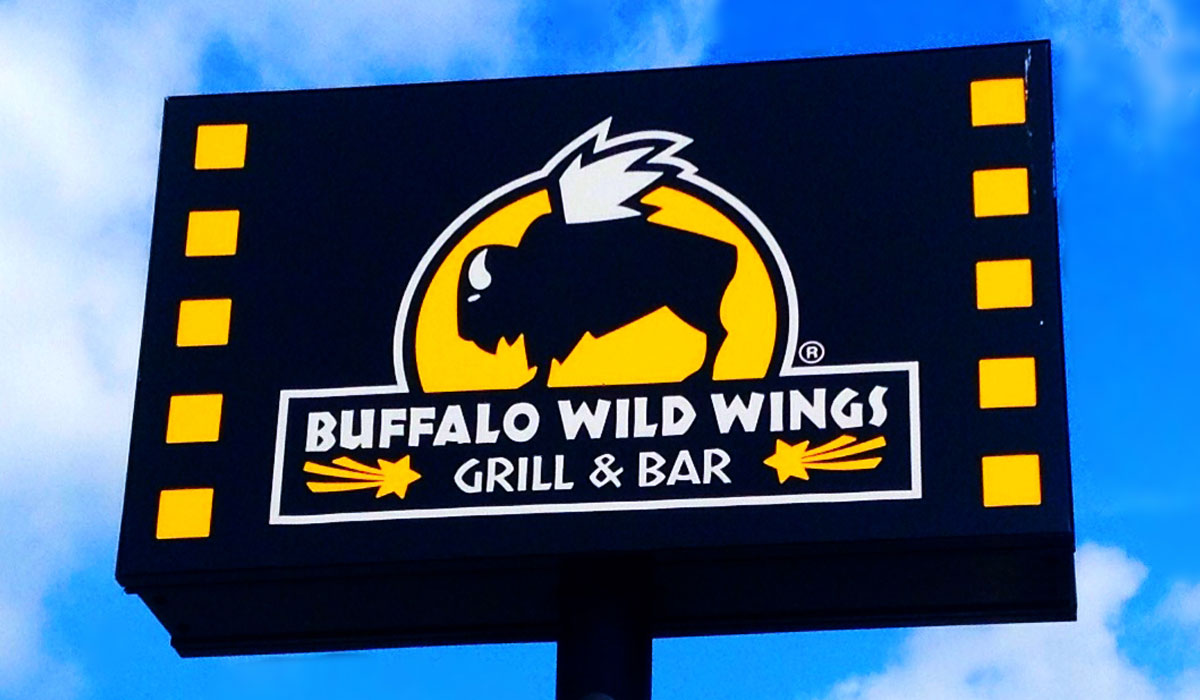Buffalo Wild Wings believes the criticism levied against its brand by activist investor Marcato Capital Management is based on “flawed assumptions.” And in a letter sent to shareholders on Monday, the company presented a picture of what life could be like under a plan it calls “speculative, aggressive or simply impossible.”
In short, Buffalo Wild Wings would look a lot like the largest casual dining chain in the country. “We do not want Buffalo Wild Wings to be the next Applebee’s,” the company bolded in the letter.
The issue at hand here is Marcato’s refranchising plan, which calls for the sale of more than 500 company-owned units by 2020. “No casual dining company has ever completed such an aggressive transition,” Buffalo Wild Wings wrote. The company’s annual meeting of shareholders is set for June 2.
Read more: Is the chicken wing to blame?
In the chicken-wing chain’s view, this idea isn’t feasible because Buffalo Wild Wings is simply not a quick-service brand. Marcato has referenced the refranchising programs of certain fast food companies, an example that is deceptive, Buffalo Wild Wings says.
“The operations and business models of quick-service restaurants are much simpler to execute than those of casual dining restaurants like Buffalo Wild Wings, and, accordingly, the franchisee market for quick-service restaurants is deeper, and the need for corporate ownership is lower. Quick-service restaurants do not have the complexity of employing servers, running an alcohol program or scheduling labor around sports and entertainment events. Additionally, the capital requirements are lower and there is less technology, loyalty program and menu complexity,” the company wrote.
That’s where Applebee’s comes into the fold. Applebee’s transition to an approximately 99 percent-franchised system has not resulted in immediate gains. In fact, the DineEquity chain has reported back-to-back same-store declines of more than 7 percent, including a 7.9 percent drop in the first quarter of this year—an announcement that was accompanied by the news that around 3 percent of the entire system, or 60 stores, could close in 2017. Already, 19 restaurants have shuttered in this fiscal year.
“Marcato was very supportive of the major refranchising at Applebee’s of approximately 480 stores, a process that took five years. However, same-store sales growth has struggled following Applebee’s transition to an approximately 99 percent franchised system and the stock has significantly underperformed,” Buffalo Wild Wings said. “… The stock of DineEquity has underperformed the casual dining sector because Applebee’s has struggled as a business now that it is fully franchised.”
Of course, one could argue that Applebee’s problems are not so narrow. But Buffalo Wild Wings’ point is clear: This rapid path to refranchising isn’t the save-all Marcato is promising.
Buffalo Wild Wing is in the process of selling 80 restaurants, a move it says still requires caution. The chain announced during its first-quarter earnings that it is now looking to refranchise 13 percent of stores through The Cypress Group
“We continuously review our portfolio of restaurants. We do not target a specific franchise mix, as the optimal balance is dependent upon many factors that change over time,” the company said. “It is important to observe, however, how rare a 90 percent franchisee model is in the casual dining sector. Among other things, for the system to perform well, it is important to have a significant number of company-owned restaurants so the company can remain in the timely flows of increasingly changing customer tastes and preferences. The only casual dining peers with a greater franchise mix than Buffalo Wild Wings are DineEquity [Applebee’s and IHOP] and Denny’s. Notably, IHOP and Denny’s are substantially easier to operate. Their ‘Family Restaurant’ model, with no alcohol, limited technology and less differentiation is much more straightforward.”
The lower-than expected earnings added some fuel to the upcoming battle. The adjusted earnings of $1.44 a share fell 19.1 percent year-over-year and missed Wall Street estimates by 24 cents. Same-store sales did climb back into the positive, but just to 0.5 percent at company-owned stores and 0.6 percent at franchised locations. Total revenue grew 5.2 percent to $534.8 million, which also fell short of the predicated $535.9 million from Zacks.
This resulted in a reduced full-year guidance of same-store sales growth of 1 percent down from 1—2 percent.
Marcato has consistently hounded Buffalo Wild Wings, even calling for the removal of longtime CEO Sally Smith, an executive who has grown the chain from less than 100 locations in 1996 to more than 1,200. Marcato also wanted to shakeup Buffalo Wild Wings board with four new directors, including McGuire. But Buffalo Wild Wings decided to nominate just one—Kraft Food veteran Sam Rovit—and turn down the rest, calling the purposed changes “risky.”
“We firmly believe that, in the absence of data about the market for our restaurants and given what history there is of such a major undertaking, it would be imprudent to announce and embark on such a dramatic transformation at this time. As fiduciaries of your investment, we cannot in good faith undertake such an aggressive endeavor with such a significant risk of destruction of shareholder value,” Buffalo Wild Wings wrote.








